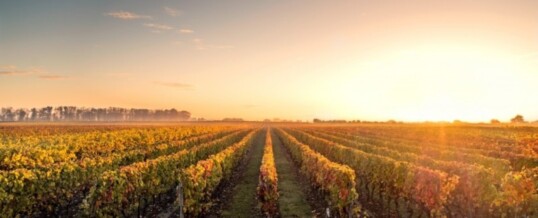
THE LORD’S VINEYARD
Today’s reading from Isaiah (5.1-7) presents a very elaborate description -a metaphor- of a vineyard. Understanding metaphors involves interpretation. The readings in our liturgy always include three segments. There is immense complexity in the relationships among them and understanding requires an ability to interpret how they illustrate one another as well as a grasp of context. In the gospel Jesus begin his parable by almost quoting Isaiah: There was a landowner who planted a vineyard, put a fence around it, dug a wine press in it, and built a watchtower.” The vineyard is not just a place to grow grapes but an entire business establishment for fermenting grapes and selling wine. and and selling wine. In the liturgy of the past few weeks, vineyards are featured in several parables, and it is clear the business is a very profitable one, providing employment for workers and wealth for the owner. Isaiah identifies the vineyard with the people God has created the People of God. As a Christian theologian I know that I cannot “know” God, but my gift is to try to understand the people who wrote and passed down the Holy Scriptures: the historians and prophets and especially those writers who told us what Jesus taught. Mostly He taught in parables, so I try to understand how parables teach and guide us.
Isaiah’s version of the vineyard teaches me that the distinction we like to make between God’s Creation (the natural world, or “ecology” and human creation (the artificial or “economy”) is simply invalid. Either the Creator makes everything, natural and artificial, or we don’t believe in a Creator at all. A picture of God’s creation can just as easily be a skyline of Toronto as of the Rocky Mountains. Athanasius said “We honour the Creator through His Creation.” All of it.
Today’s liturgy places a reading from Saint Paul’s Letter to the Philippians between the two stories of the Vineyard. Paul says, “Do not worry about anything.” Do not worry about anything. Instead, fill your mind with the beauty of God’s creation.,
whatever is true: Science, including Math, Physics, Biology.
whatever is honourable: the Law, civil, criminal, religious.
whatever is just: honest work and trade (the economy)
whatever is pure: children at play?
whatever is pleasing: music, dance, food and drink?
whatever is commendable: caring for the sick and poor, teaching.
“If there is any excellence, anything worthy of praise, think of these things.”
To avoid worry is to think positively about any of the above human activities. Perhaps it is this admonition from Saint Paul that inspired the Church’s deep commitment to schools and hospitals. To actively work at solving problems is a good way to avoid worrying about them.
In my opinion there are two very serious problems in our world: the continues enslavement of women in many societies and global warming. Both problems will be solved by the combined efforts of people who “in everything by prayer and supplication with thanksgiving let your requests be made known to God.”
~Agnes Beirne, St. Elizabeth of the Trinity Parish Grouping
OCT
2023

About the Author: